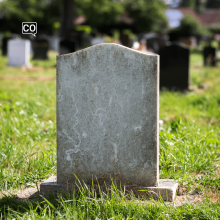Morir (to die) - Pretérito perfecto, indicativo (Present Perfect, indicative) - Spanish

Morir - Conjugation of to die in Spanish: Conjugation table, examples and exercises in the present perfect, indicative tense (Pretérito perfecto, indicativo).
Pretérito perfecto, indicativo (Present Perfect, indicative)
All conjugations and tenses: Morir (to die) - conjugation and tenses - (Spanish)
Syllabus: Spanish lesson - Infancia y recuerdos (Childhood and memories)
Conjugation of to die in Pretérito perfecto
- yo he muerto I have died
- tú has muerto You have died
- él/ella ha muerto he has died/she has died
- nosotros/nosotras hemos muerto we have died
- vosotros/vosotras habéis muerto you have died
- ellos/ellas han muerto They have died
Example phrases
- He muerto de risa en el bosque. I have died of laughter in the forest.
- Has muerto de cansancio después de subir la montaña. You have died of exhaustion after climbing the mountain.
- Ella ha muerto de asombro al descubrir la cascada. She has died of amazement upon discovering the waterfall.
- Nosotros hemos muerto de frío en el camping. We have died of cold at the campsite.
- Vosotras habéis muerto de vergüenza al perderse en el hostal. You have died of embarrassment at getting lost in the hostel.
- Ellos han muerto de aburrimiento durante la excursión al valle. They have died of boredom during the excursion to the valley.
Exercise: Conjugate the verbs - morir (to die)
Instruction: Choose the correct word, read the sentence out loud and translate.
Show answers Show translationMorir (Pretérito perfecto, indicativo)
1. Vosotras ... de vergüenza al perderse en el hostal.
2. Ellos ... de aburrimiento durante la excursión al valle.
3. ... de risa en el bosque.
4. Nosotros ... de frío en el camping.
5. ... de cansancio después de subir la montaña.
6. Ella ... de asombro al descubrir la cascada.